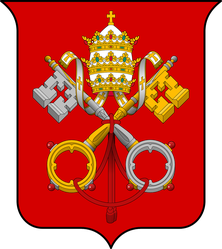Firstly, there is a vast difference between Christian and secular, humanist ethics, although far too few people recognize the size of the gap between them. While Christians and humanists both agree that murder, rape and theft, etc are wrong, the two sides are marching to different drummers and their ways of life differ.
The fundamental questions of ethics are:
- how should I live in society
- what sort of respect do I owe other beings
- of what does human excellence consist
- and linked to this last question, what sort of character should I have
Secular ethics as practised by humanists is an ethical system that is centred on enlightened self-interest. It regards humans as rational beings who want to assert their own rights, but who need to live in a society where others have rights as well, and it believes that it is in our mutual interest to respect the rights of others. Beings other than humans are often, though not always respected, and given their due weight in ethical decision making. Utilitarianism, a form of secular ethics, asserted from early on in its history that animals have to be considered as well as humans, though utilitarianism disbelieves in rights. There is no goal to secular ethics other than a shared acceptance that humans are here but once and that they want their lives to be as comfortable as possible, and humanists recognize that this involves ensuring that others have the same consideration as they do. In humanist ethics there is no room for gods or higher spiritual beings, who are not believed to exist. Love is praised, but not required,and self-sacrificial love may be admired, but it is not even an ideal.
Here we find one point of contact between Christian and secular ethics: the principle of giving due regards to all beings. It is clear that humanists/secularists have a reasonably good record on animal rights, because they recognize that animals merit due consideration, not as much as persons in most cases, but certainly consideration for their need to live and die without pain and in some dignity. Christians might agree, but they point out that there is a higher being who is greater in power, wiser and far better than humans are, and this being deserves proportionally great respect, service and love. Thus they regard this being as their leader, the source of their law. Christians obey God, not as mere slaves to a tyrant in the sky, a capricious old man with a beard, but a loving leader whose wisdom extends far beyond the wisdom of humans, and who can therefore guide us in the right path.
Another point of contact between Christians and humanists is that both believe that life matters. But while the humanist believes that there is but one life that should be enjoyed to the full for the brief time that it exists, while Christians set this life in the context of something longer, even infinite, that extends beyond death. This next stage of life matters. But the humanist accusation that Christians focus exclusively on the next life might be true for some Christians , but in most cases Christians work for a better world and believe that this life really matters, which is why they do so many acts of charity.
This takes us to a key point of Christian ethics: it is teleological, which means that it is goal directed. The goal is to have life eternal, and so Christian ethics aims not only at happiness in this life, but happiness beyond life. Secular ethics does not.








 Pilgrimage. A reviewon 06/15/2025
Pilgrimage. A reviewon 06/15/2025
 Leo the Fourteenthon 05/09/2025
Leo the Fourteenthon 05/09/2025
 The Melsonby Hoardon 03/25/2025
The Melsonby Hoardon 03/25/2025




Comments
There are different ways of approaching ethics. Do to others Tec is at the heart of many ethical systems, but ethics as a character is also found in the sermon on the mount, which specifies what sort of character Christians should be.
Some Unitedstatesians consider as basic Christian motivations and motives "Do unto others as you would have others do unto you."
Does that prescription fit in an ethics code of "[H]ow should I live in society? W]hat sort of respect do I owe other beings[? O]f what does human excellence consist[?] and linked to this last question, what sort of character should I have[?]"
Religion takes God's view on the matter, and so even if you say that you don't know, God will know and so the heavenly court will still find you out.
The first sentence in the introductory paragraph advises us that "There is a great divide between religious and secular ethics."
Unitedstatesian law has considered as non-lying, non-perjurious someone saying that he/she does not recall someone or something or he/she "may have done, may have said" -- whose phrasing cannot be interpreted as admission of guilt -- something when in fact he/she does remember someone or something or he/she does remember as a fact having done, having said something.
Would the above two examples religiously be considered lying, perjurious?
The related news articles appeared on this, western (Atlantic) pond side at the end of March.
Emma Marris authored the article Stressed plants 'cry' and some animals can probably hear them for Nature March 30, 2023.
Lilach Hadany's team members of Tel-Aviv University conducted research on tobacco and tomato plants and on maize, wheat and wine grapes. Hydrated, uncut plants communicate one ultrasonic sound -- at 20 to 100 kilohertz -- per hour even as cut, stressed, thirsty plants complete 35 clicking, crackling, popping sounds per hour.
Professor Hadany explains that perhaps the sounds ensue from air bubbles breaking or forming from surface tension-held xylem water.
The research article is Sounds emitted by plants under stress are airborne and informative -- by Itzhak Khait, Ohad Lewin-Epstein, Raz Sharon, Kfir Saban, Revital Goldstein, Yehuda Anikster, Yarden Zeron, Chen Agassy, Shaked Nizan, Gayl Sharabi, Ran Perelman, Arjan Boonman, Nir Sade, Yossi Yovel and Lilach Hadany -- for Cell volume 186, issue 7, pages 1328-1336 March 30, 2023.
It's available, through the References at the end of the Marris article, by clicking the phrase Google Scholar in the line below the first of two sources to the article. It's downloadable by clicking the the word Article just left of the clickable Google Scholar phrase.
A Mary heart is a spiritual and gentle heart. Those who possess one are sensitive, and their sensitivity will extend to all created beings.
I am unfamiliar with the research that shows that plants make sounds.
One of your product lines is Having a Mary heart in a Martha world.
Would that mean taking time for animal and plant sentients in a task-defined world?
(Would you happen to have read the recent research that plants make sounds?)
One principle which I did not have space to adequately cover is natural law ethics. While the Protestants believe that all ethics are in the Bible, the Catholic Church believes that there is an ethical system built into nature and accessible by all people of all faiths and none by reasoning. The role of religion [Church and the Bible] is to help us understand this ethical system more completely, which it does by revealing its author, God to us, and also to show some aspects of it that transcend reason,such as the primacy of love.
There are a set of rules that one needs to adhere to. These are common for all religions. They hold good to theist and atheist alike.
Don't you feel unsettled when you do wrong. Did you ever wonder why one needs to follow virtuous traits and protocols for living a pious life? After all, if adultery, cheating, infidelity and crime were the traits that one had to follow wouldn't they gain merit and be rewarded.
There is a reason why humans need to follow good traits such as humanity, service, peace making and compassion.These traits are universal whether you belive in God or not; and whether you believe in any religion.
Yes, it was reported that Frank accepted his guilt and the need for punishment, and that he was the only Nazi to enter the execution room with a smile on his face. It is thought that he knew that he was paying for his sins. There is one line in the liturgy [I cannot remember exactly where] "Oh God, who wills not the death of a sinner, but rather that he be converted and live." This line expresses Christ's mission and the Christian mindset perfectly. It is with this salvation hope in mind that I hark back to the vision of Julian of Norwich. She "saw" Hell. It was empty! She believed that on the Day of Judgement the Trinity would effect a work so wonderful and so beyond human comprehension that even the damned will be rescued.
Luther argued that God does not accept unjust excommunication, as happened to Joan of Arc.